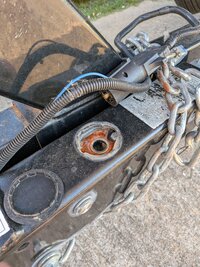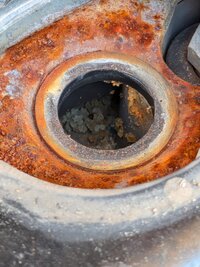paleus
Active Member
- Messages
- 48
- Reaction score
- 49
- Points
- 27
- Boat Make
- Yamaha
- Year
- 2016
- Boat Model
- AR
- Boat Length
- 24
Got a new to us 2016 AR240 at the end of the summer.
The brakes are not working. We towed it a few times as it is and didn't have any trouble but a winter project is to get the trailer back into shape.
Here's what the brake fluid reservoir looks like:


Bone dry and some crud in there.
Is this salvageable or do I just need to get a whole new actuator?
Everything moves freely in the actuator and the shock is still damping the movement.
The brakes are not working. We towed it a few times as it is and didn't have any trouble but a winter project is to get the trailer back into shape.
Here's what the brake fluid reservoir looks like:


Bone dry and some crud in there.
Is this salvageable or do I just need to get a whole new actuator?
Everything moves freely in the actuator and the shock is still damping the movement.

